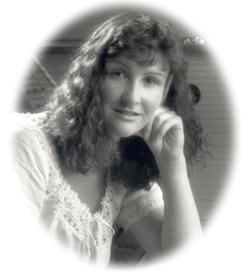Jesse Rowan - The Songs
When I first learn a song I listen to my favourite version, and emulate the singer as closely as possible. But I find as time goes on I grow into the song and it becomes my own, and if I listen to the original version again I find I am singing it differently. It becomes like a well fitting set of favourite clothes, rather than the crisp newly ironed and unfamiliar feeling I get from reading the words as I start to learn a new song. Perhaps I'll change a few words if I think a mondegreen has occurred, and occasionally I've committed a few of those myself when trying to decipher a strong accent on a rough recording. Sometimes I add a verse to complete the end of the story, or drop a verse if I don't feel it's central to the story and the song might have been a bit too long for the listener. Often I find several versions of the same song, perhaps one from the American tradition and another from the English or Irish tradition, and I find new verses in one that complete the story, so I combine versions. I've picked up some songs from the singing of others in the Canberra folkscene, but mostly I rely on old recordings and CDs for my sources. I've also pored through collections of books in libraries and private collections looking for long lost gems, and the internet has brought the world of traditional singing to my door.
|
 At first a
song comes to my attention because of its interesting melody. But if the
words don't mean anything to me I don't learn it. I like a sense of poetry
in the lyrics of modern songs, and a well-constructed message that calls
to my heart. The story in the old ballads is important to me. I love those
exciting murder ballads, the unrequited love stories, the magical myths of
days gone by. As a child my family moved around every few months to a year
and in every school library, where I retreated in my spare time, I escaped
into the Myths, Legends and Fairytales section.
At first a
song comes to my attention because of its interesting melody. But if the
words don't mean anything to me I don't learn it. I like a sense of poetry
in the lyrics of modern songs, and a well-constructed message that calls
to my heart. The story in the old ballads is important to me. I love those
exciting murder ballads, the unrequited love stories, the magical myths of
days gone by. As a child my family moved around every few months to a year
and in every school library, where I retreated in my spare time, I escaped
into the Myths, Legends and Fairytales section.